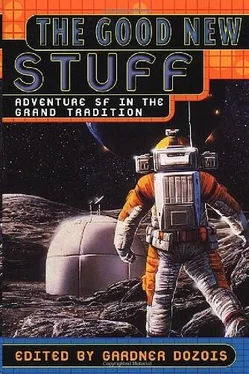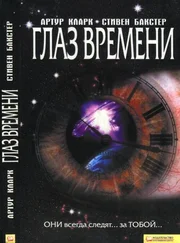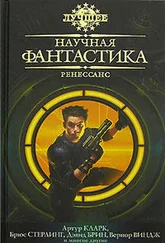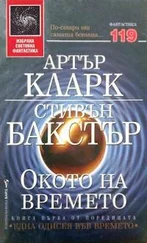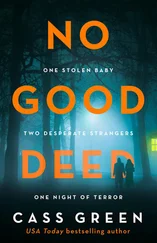Стивен Бакстер - The Good New Stuff
Здесь есть возможность читать онлайн «Стивен Бакстер - The Good New Stuff» весь текст электронной книги совершенно бесплатно (целиком полную версию без сокращений). В некоторых случаях можно слушать аудио, скачать через торрент в формате fb2 и присутствует краткое содержание. Год выпуска: 2002, ISBN: 2002, Издательство: St. Martin's Griffin, Жанр: Фантастика и фэнтези, на английском языке. Описание произведения, (предисловие) а так же отзывы посетителей доступны на портале библиотеки ЛибКат.
- Название:The Good New Stuff
- Автор:
- Издательство:St. Martin's Griffin
- Жанр:
- Год:2002
- ISBN:0-312-26456-9
- Рейтинг книги:3 / 5. Голосов: 1
-
Избранное:Добавить в избранное
- Отзывы:
-
Ваша оценка:
- 60
- 1
- 2
- 3
- 4
- 5
The Good New Stuff: краткое содержание, описание и аннотация
Предлагаем к чтению аннотацию, описание, краткое содержание или предисловие (зависит от того, что написал сам автор книги «The Good New Stuff»). Если вы не нашли необходимую информацию о книге — напишите в комментариях, мы постараемся отыскать её.
The Good New Stuff — читать онлайн бесплатно полную книгу (весь текст) целиком
Ниже представлен текст книги, разбитый по страницам. Система сохранения места последней прочитанной страницы, позволяет с удобством читать онлайн бесплатно книгу «The Good New Stuff», без необходимости каждый раз заново искать на чём Вы остановились. Поставьте закладку, и сможете в любой момент перейти на страницу, на которой закончили чтение.
Интервал:
Закладка:
The heresy never died completely, of course. There are always those who believe no matter what. And so to this day The Way of Cross and Dragon is read on Arion, in the porcelain city Ammadon, amid murmuring whisperwinds.
Arla-k-Bau and the Truth of Christ carried me back to Vess a year after my departure, and Archbishop Torgathon finally gave me the rest I had asked for, before sending me out to fight still other heresies. So I had my victory, and the Church continued on much as before, and the Order of Saint Judas Iscariot was crushed and diminished. The telepath Jon Azure Cross had been wrong, I thought then. He had sadly underestimated the power of a Knight Inquisitor.
Later, though, I remembered his words.
You cannot hurt us, Damien.
Us?
The Order of Saint Judas? Or the Liars?
He lied, I think, deliberately, knowing I would go forth and destroy the way of cross and dragon, knowing too that I could not touch the Liars, would not even dare mention them. How could I? Who would believe it? A grand star-spanning conspiracy as old as history? It reeks of paranoia, and I had no proof at all.
The telepath lied for Lukyan's benefit, so that he would let me go. I am certain of that now. Cross risked much to snare me. Failing, he was willing to sacrifice Lukyan Judasson and his lie, pawns in some greater game.
So I left, and carried within me the knowledge that I was empty of faith but for a blind faith in truth, a truth I could no longer find in my Church.
I grew certain of that in my year of rest, which I spent reading and studying on Vess and Cathaday and Celia's World. Finally I returned to the Archbishop's receiving room, and stood again before Torgathon Nine-Klariis Tûn in my very worst pair of boots. "My Lord Commander," I said to him, "I can accept no further assignments. I ask that I be retired from active service."
"For what cause?" Torgathon rumbled, splashing feebly.
"I have lost the faith," I said to him, simply.
He regarded me for a long time, his pupilless eyes blinking. At last he said, "Your faith is a matter between you and your confessor. I care only about your results. You have done good work, Damien. You may not retire, and we will not allow you to resign."
The truth will set us free.
But freedom is cold and empty and frightening, and lies can often be warm and beautiful.
Last year the Church finally granted me a new and better ship. I named this one Dragon.
Dubuque, Iowa.
December, 1978
Bruce Sterling
SWARM
One of the most powerful and innovative new talents to enter SF in recent years, a man with a rigorously worked-out and aesthetically convincing vision of what the future may have in store for humanity, Bruce Sterling as yet may still be better known to the cognoscente than to the SF-reading population at large, in spite of a recent Hugo win. If you look behind the scenes, though, you will find him everywhere, and he had almost as much to do— as writer, critic, propagandist, aesthetic theorist, and tireless polemicist— with the shaping and evolution of SF in the eighties and nineties as Michael Moorcock did with the shaping of SF in the sixties; it is not for nothing that many of the other writers of the eighties and nineties refer to him, half ruefully, half admiringly, as "Chairman Bruce."
Sterling published his first story in 1976, in an obscure anthology of stories by Texas writers called Lone Star Universe, and followed it up in 1977 with his first novel, Involution Ocean. Neither story nor novel attracted much attention, nor would his second novel, The Artificial Kid, in 1980— indeed, both novels remain fundamentally unread even today, although, in retrospect, The Artificial Kid is interesting, if for nothing else because it is clearly an early cyberpunk work; at the time the few critics who mentioned it seemed to be puzzled by it, and dismissed it as a grotesque curiosity. Although Sterling would later produce much better work, both novels are still readable, and in some ways closer to the canons of traditional adventure fiction than some of his more mature later work. They're also interesting because some of Sterling's influences show up more clearly there than they do elsewhere. William Gibson has refered to The Artificial Kid as being like "a Jack Vance novel, but with a protagonist who seemed to be compounded of equal parts Bruce Lee, Iggy Pop, and Johnny Rotten," but both that novel and Involution Ocean demonstrate as well a heady stew of (sometimes only partially digested) influences from writers as diverse as Melville, Dickens, the J. G. Ballard of the "Vermilion Sands" stories, Harlan Ellison, and Jules Verne, as well as from a number of other pop culture sources, many of them not only outside the SF genre but outside the print genre altogether. Perhaps most noticeably, the strong influence of the early work of Samuel R. Delany can be seen— Sterling's Artificial Kid is clearly a variant of the Magic Kid character (to borrow Algis Budrys's useful critical phrase) who figures in most of Delany's early work, and it's easy to picture him strolling into Sterling's novel for a side gig after working a day job in The Einstein Intersection or The Jewels of Aptor.
Sterling's early work raised hardly a ripple in the gunmetal-placid surface of the SF world of the late seventies, though. Like many another new writer of the day, Sterling would have to wait for "steam engine time," for the revolutionary surge of new creative energy that would sweep into the field around 1982, before his work was suddenly accessible to, and ready to be appreciated by, the SF readership. And like many another new writer, he first caught on with his short fiction, attracting interest and acclaim with a series of stories he published in the middle eighties in places like The Magazine of Fantasy & Science Fiction, Omni, and Universe.
The first such story was the one that follows, "Swarm," published in 1982 in F&SF. It was clear at once that this was something new; although there were still recognizable influences on Sterling's new work— A. E. van Vogt, Charles Harness, Alfred Bester, Cordwainer Smith, Larry Niven, Olaf Stapledon, along with echoes of Delany and James Tiptree, Jr. — he had integrated those influences better, melded them successfully to produce a strong and individual new voice of his own. With his usual flair for the vivid phrase, Sterling himself has said of "Swarm" that "with that story, I finally gnawed my way through the insulation and got my teeth set into the buzzing copper wire."
"Swarm" was followed in the next three years by a string of other "Shaper/ Mechanist" stories such as "Cicada Queen," "Spider Rose," and "Sunken Gardens," all set against the backdrop of Sterling's exotic Shaper/Mechanist future, a complex and disturbing future where warring political factions struggle to control the shape of human destiny and the nature of humanity itself. Although there were only a few "Shaper/Mechanist" stories, they rank among the strongest work of the decade, and had a disproportionate impact on the SF scene of the day, being especially influential on other new writers and authors-in-the-egg.
The Shaper/Mechanist vision of the future would reach its purest expression in his landmark 1985 novel Schismatrix, a vivid, complex, chewy meditation on cultural evolution, Stapledonian and yet buzzing with paranoid energy and tension, something like what you might get if Alfred Bester and A. E. van Vogt had collaborated to write Last and First Men.
(Shaper/Mechanist stories were far from all that Sterling produced in the eighties, although much of his other work takes us far enough away from the adventure tradition to be outside the purview of this book. With only the partial exception of the Shaper/Mechanist series, though, no two stories by Sterling are ever much alike in tone or setting or style; there is so much difference between the Sterling of "Dinner in Audoghast" and the Sterling of "The Beautiful and the Sublime" and the Sterling of "Green Days in Brunei" and the Sterling of "Flowers of Edo" and the Sterling of "Dori Bangs" that they might as well all be different individual writers— which makes their influence on later work more difficult to spot.)
Читать дальшеИнтервал:
Закладка:
Похожие книги на «The Good New Stuff»
Представляем Вашему вниманию похожие книги на «The Good New Stuff» списком для выбора. Мы отобрали схожую по названию и смыслу литературу в надежде предоставить читателям больше вариантов отыскать новые, интересные, ещё непрочитанные произведения.
Обсуждение, отзывы о книге «The Good New Stuff» и просто собственные мнения читателей. Оставьте ваши комментарии, напишите, что Вы думаете о произведении, его смысле или главных героях. Укажите что конкретно понравилось, а что нет, и почему Вы так считаете.
